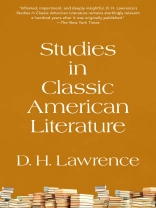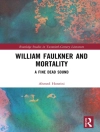In Studies in American Literature, D. H. Lawrence’s brilliance as both a writer and a critic shimmers with energy and originality. His thought-provoking look at canonized American literature is a brazenly opinionated, unabashed, playfully irreverent examination of authors and works that have shaped the American literary imagination. His unyielding intellectual curiosity sheds new light on the grand tapestry of Walt Whitman’s poetic vision, the daring spirit of Edgar Allan Poe’s dark tales, the transformative power of Nathaniel Hawthorne’s allegorical genius, and the raw passion of Herman Melville’s maritime epics, among other assessments. For scholars, students, and passionate readers alike, Studies in Classic American Literature offers an invitation to join a vibrant dialogue with D. H. Lawrence as he dismantles traditional paradigms, reveals fresh perspectives that challenge the conventional understanding of some cherished classics, and explores the heart and soul of a nation through its literary legacy. This Warbler Classics edition includes an extensive biographical timeline.
Table of Content
Contents
Foreword
I. The Spirit of Place
II. Benjamin Franklin
III. Hector St. John de Crèvecœur
IV. Fenimore Cooper’s White Novels
V. Fenimore Cooper’s Leatherstocking Novels
VI. Edgar Allan Poe
VII. Nathaniel Hawthorne and ‘The Scarlet Letter’
VIII. Hawthorne’s ‘Blithedale Romance’
IX. Dana’s ‘Two Years Before the Mast’
X. Herman Melville’s ‘Typee’ and ‘Omoo’
XI. Herman Melville’s ‘Moby Dick’
XII. Whitman
Biographical Timeline
About the author
D. H. Lawrence (1885-1930) was a pioneering English novelist, poet, essayist, and literary critic renowned for his provocative exploration of human emotions, sexuality, and societal norms. Born in the coal-mining town of Eastwood, Nottinghamshire, Lawrence’s modernist works like Sons and Lovers, The Rainbow, Women in Love, and Lady Chatterley’s Lover challenged prevailing conventions of his time, delving deeply into social alienation, modernity, and industrialization. Despite facing censorship and controversy, Lawrence’s literary legacy endures as a testament to his daring and original contributions to literature and his unyielding quest for authenticity in artistic expression.












